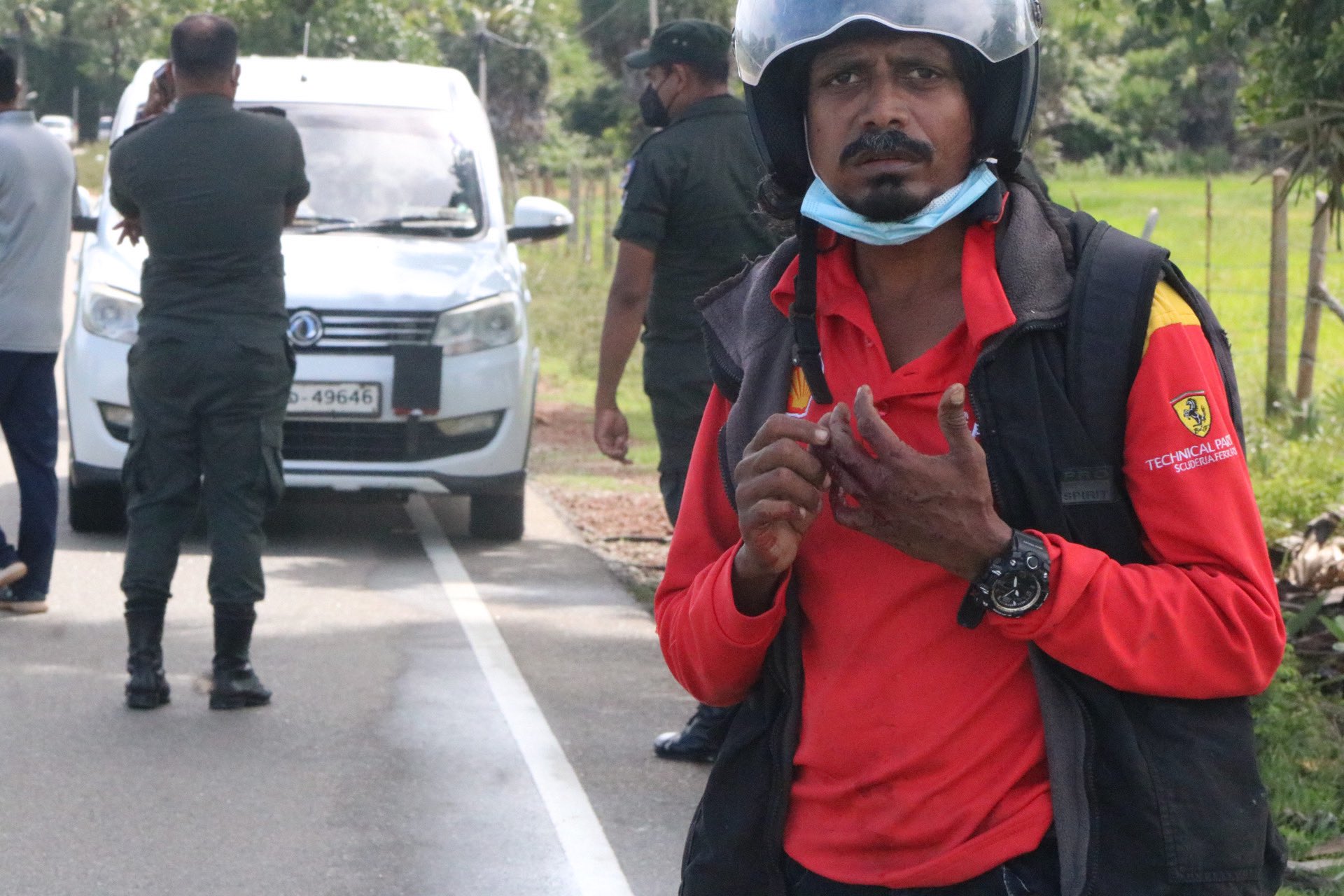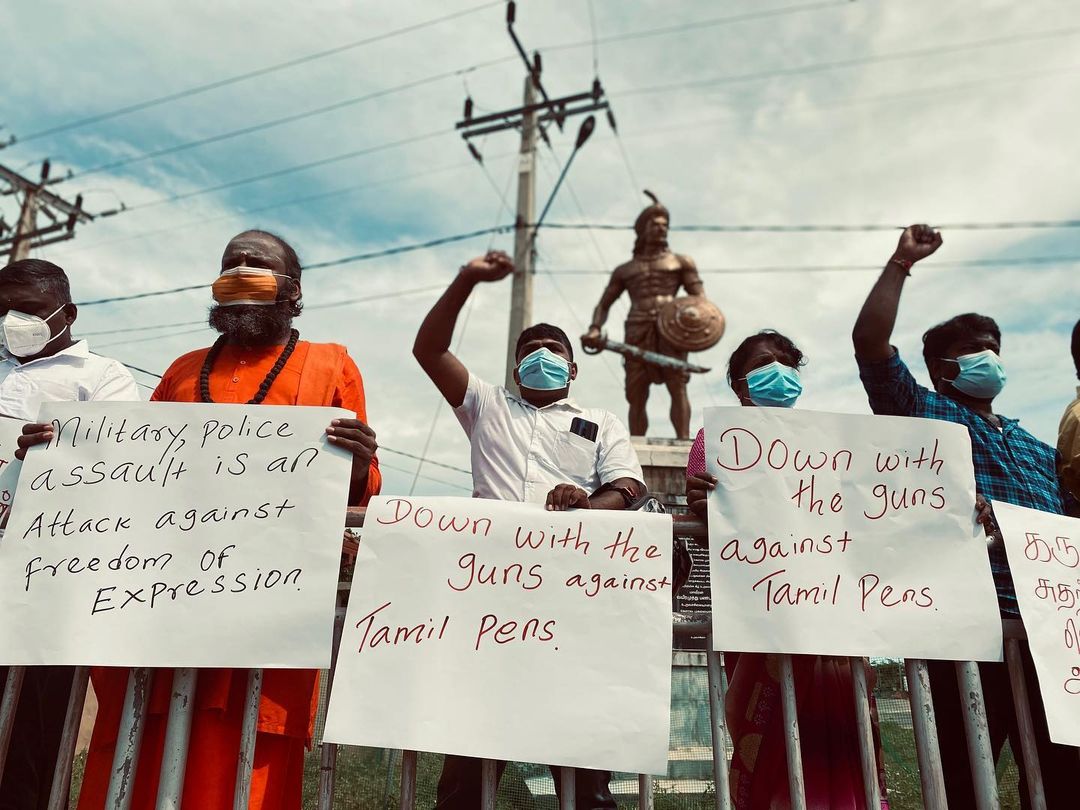
The Sri Lankan army has lashed out at the media in a public statement released today, claiming that the assault of a Tamil journalist by military personnel on Saturday was "unverified, exaggerated and factually incorrect", instead blaming "various social media platforms, largely with vested interests".
The military decried coverage of the assault as a “carefully orchestrated and maliciously planned plot” and urged the public not to be “misled by such planted incidents and malicious attempts”.
Their statement alleges that rather than being beaten with palmyra sticks wrapped in barbed wire, journalist Vishvalingham Vishvachandran had “begun withdrawing backwards while filming, but suddenly struck against his own monitor cycle […] and fell over the same place where a barbed-wire fence of a land also stood’. The military then claimed that several groups “arrived at the scene with video cameras and mobile phones, asking the injured man to pretentiously lie on the ground and pose for visuals for the staged-managed filming”. The statement goes on to undermine the seriousness of the injuries suffered by the journalist.

The attack on Viswachandran has spurred protests across Mulluitivu with the Mullaitivu Press Club releasing a statement condemning not only his assault but the ongoing harassment of Tamil journalists.
The military further attacked journalists claiming that many “have already sought asylum in greener pastures” and highlighted that this was the case in the aftermath of the armed conflict in which tens of thousands of Tamil civilians were slaughtered.
These reports, the army states, “are well poised to tarnish the image of the Security Forces in the North and East”. They also add that their “gestures of healthy reconciliation and sound goodwill between the people and the Security Forces in the past couple years have impressively grown in a positive manner”. This comes despite widespread protests across the North East against the pervasive military occupation of the Tamil homeland.
According to reports, the three soldiers will face an “inquiry” by Sri Lankan military police rather than any legal action under the Penal Code. released on bail after their arrest over the assault on #Tamil journalist Vishwachandran will face an ‘inquiry’ by military police, rather than police. Army inquiry or legal process in this case (under Army Act) should be separate and in addition to that by civil authorities/police as the offence (under Penal Code) is against a civilian in a public area. This is an offence in the Penal Code & CAT Act, which was committed against a civilian.
“Who made the decision to hold an army inquiry instead of following normal criminal justice process & on what basis?,” tweeted Sri Lanka’s former Human Rights Commissioner Ambika Satukunanathan. “This is eg of decades long impunity enjoyed by the security forces.”
Sri Lanka remains one of the most dangerous places in the world for journalists, with the island remaining 127th out of 180 countries on the Reporters Without Borders World Press Freedom Index. Journalists for Democracy in Sri Lanka have recorded that at least 44 journalists have been killed or disappeared from 2004 to 2010 alone. Most of these journalists (41) were Tamil and from the North-East. The true figure is expected to be much higher.
Read the military’s statement here.
Read more on the assault here.
